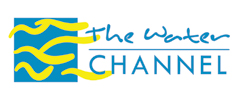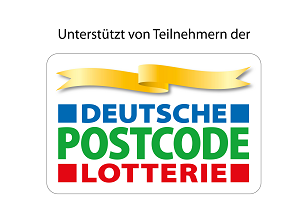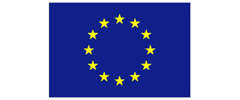Live from Copenhagen: Four hours of testimonies from people affected by nuclear energy
Nuclear energy goes against human rights and is unsustainable
18.12.2009 | WECF Press Release

Heads of states of the nuclear countries Iran and Pakistan confirmed that their future energy focus would be nuclear, during the Copenhagen climate negotiations. Therefore the worldwide alliance of non-governmental organisations “Don’t Nuke the Climate “, which includes WECF, WISE and RSdN organised 2 sessions of 4 hours of testimonies from grass roots communities, scientists and lawyers affected by the nuclear energy industry, in parallel to the official negotiations.
The testimonies articulated the worst human rights abuses around nuclear waste sites and uranium mines on indigenous Peoples’ and local communities’ lands and territories. One of the testimonies was from Nadezhda Kutepova, lawyer and director of the Russian NGO “Planet of Hopes”. She said "we have brought the case of 100 victims of the Mayak nuclear complex to the European Court of Human Rights, as the Russian court has refused to pay anything more than 1 Euro (40 roubles) per month for damage payments to people who now have life-long handicaps, have cancer or are unable to work from their lifetime exposure to low-radioactive contamination. If nuclear energy gets subsidized through carbon credits, we will have to bring the cases of million and millions of women, men and children to court".
Kaisha Atakhanova, Goldman Prize Winner and chair of the Kazakh Eco-Forum, explained how she comes for the Semipalatinsk nuclear testing area in Kazakshastan, which caused miscarriages, birth defects and cancer among the local population who continue to live in a contaminated environment. The Kazakh government has not and can not pay for a clean up of the radioactive contamination which is dispersed in the environment. Kaisha Atakhanova concluded “despite this enormous nuclear contamination from the Soviet period it is so sad that we have not learned the lessons, and that the Kazakh government is planning to become a big exporter of uranium”.
Karin Wurzbacher, physicist and nuclear energy expert of the Environmental Institute of Munich, Germany, presented the results of a recent health research which shows higher levels of certain cancers among children living within 5 kilometer vicinity of nuclear powerplants in Germany. She said this is so far the only study of its kind.
Sascha Gabizon, Director of WECF, commented “these terrible results should be enough to take immediate precautionary action, we should be relocating families living near nuclear power stations immediately and assuring a fast phase-out from nuclear energy. Each child who dies of cancer is a tragedy, especially if it was preventable. We do not need nuclear energy, renewable energy is already more competitive today, with prices of wind at 2000 euro per Kwpeak.”
The French organisation “Sortir du Nucléaire” also gave hope, by presenting the work of the province of Nord Pas de Calais on a nuclear-free low-carbon energy scenario, an example which is beginning to be followed by some other regions. When asked what this would cost compared to the current nuclear energy, Charlotte Mijon said “no-one can compare costs. The French government has recently published its energy scenario, giving costs of all types of energy used, except for nuclear, as that is a ‘commercial secret’. Or better - a state secret!” she added with a wry laugh.
Earl Tulley, Board Member of Diné CARE (Citizens Against Ruining our Environment) and a member of the Navajo Nation of the American Southwest, said that uranium mining caused cancer among their population, including his own wife, and that they had no traditional names nor healing methods for the health damage caused by uranium mining. He stated that the Navajo community began to realize that they were being seen as “collateral damage” of nuclear energy industry, and started to organize opposition. Now large road signs at the entrance of the Navajo country tells the industry “Warning: Nuclear Free Zone”.
Charlotte Mijeon of the French movement “Reseau: sortir du nucleaire” (French Network for Nuclear Phaseout) presented the human rights abuse caused the uranium mining for French companies in Niger (a former French colony) in Africa which obtained permits for an areas of more than 85,000 square kilometres. Full powers have been given to the Niger army and a state emergency has been declared in the uranium mining region. The local population, mostly indigenous Touareg communities are being forcefully expelled from their lands. Arbitrary arrests, executions, killing of livestock, destruction of agricultural means, restricted access, depletion of non-renewable fossil water sources, has destroyed the means of subsistence of these nomadic peoples. When the uranium miners develop lung cancer, they are mistakenly diagnosed with HIV-aids. Charlotte Mijeon concluded “French energy companies promote nuclear as a clean and sustainable, and the un-informed energy consumers are not aware of the destruction and abuse their electricity use causes in Africa”.
Dr. Bremley Lyngdoh, Founder of the Meghalaya Action Network (MAN), presented the case of experimental uranium mining in Meghalaya, North East India. India as a nuclear military and energy power is mining weapons grade uranium in an area where the Khasi indigenous peoples live. Their land and water is polluted, their health destroyed with bone, prostrate and breast cancer, but when Lyngdoh speaks up to defend his indigenous people, the government calls him a traitor, and someone who wants to obstruct development of the country. Lyngdoh showed the CO2 intensity of the different phases of the nuclear cycle, confirming that uranium mining is the most CO2 intensive ore mining. Lyngdoh called on people to buy renewable energy from their local social entrepreneurs instead of paying for the pollution and destruction of nuclear energy. Lyngdoh concluded by stating that “nuclear industry should be held liable for damage done, and should be obliged to clean up all radioactive polluted lands and water sources of indigenous peoples”.
Claire Greensfelder of the International Forum on Globalization of San Francisco, California, United States, compared the net energy output of the different sources (EROEI or Energy Returned on Energy Invested), with wind energy already returning at least 18 units of energy output per unit invested EROIE while the best that nuclear can possibly do is somewhere between 1.1 and 15 (with most analyses being very sceptical that nuclear power can actually reach past 4 or 5 units of EROIE).. She stated that nuclear energy is not only destructive and expensive but also anti-democratic, needing great costs in security, police, fences for thousands of years to come given the toxicity of radioactive waste, now stored on site at many nuclear energy stations around the US and the world. She called on participants to contact their governmental policy makers at home and in the Bella Center in Copenhagen and tell them to assure that the negotiated texts for the Clean Development Mechanism (CDM), Joint Implementation (JI) and Nationally Appropriate Mitigation Actions, or “NAMAS” must remove any currently proposed language that supports nuclear energy with subsidies from the global carbon credit and investment market.
Sascha Gabizon, Director of WECF, commented “developing countries should be warned, when even the biggest nuclear exporter in the world is not giving information to its own citizens about how much are paying for nuclear energy, - as clearly the French nuclear energy is subsidized – then they should be careful in believing the sales talks of President Sarkozy when he visits countries, trying to sell them nuclear plants. If France could prove that nuclear energy were cheaper then renewables, they would have announced the real price immediately, so, in fact, it can only be more expensive, much more expensive.”
Don’t Nuke the Climate:
The “Don’t Nuke the Climate!” campaign includes more than 350 organizations in 45 countries around the world. Member organizations are campaigning for a global nuclear phase-out and calling attention to the fact that nuclear power is not only far too dangerous, but also new construction and development would be much too slow to address climate emergency. Finally, nuclear power is just too expensive and inappropriate for meeting the energy needs of the Global South. Should this technology be included in a climate agreement, it would deprive real solutions (e.g. energy efficiency and renewable energies) from much-needed financing.
WECF
A healthy Environment for All is the main mission of WECF, Women in Europe for a Common Future. WECF is a network of a hundred women's and environmental organisations in 40 countries. Our network spans Western Europe and the EECCA region (Eastern Europe, the Caucasus and Central Asia). WECF has three offices: in the Netherlands, Germany and France. WECF mobilises women to find affordable solutions to the environmental health problems in their communities and encourages women in decision making.
Related News
Meet the Winners of the Gender Just Climate Solutions Award at COP24
On the 70th anniversary of the Universal Declaration of Human Rights, we awarded Gender Just Climate Solutions Winners at the climate negotiations in Katowice, Poland
11.12.2018
Invitation: Gender Just Climate Solutions Award 2018
10 December, COP24 Katowice
04.12.2018
Getting to the Future We Want
4-7 November, Brussels: European Environmental Bureau’s (EEB) Annual Conference
12.11.2018
GoodFood4All
WECF and partners all over Europe start GoodFood4All Campaign
06.11.2018
#Ruralwomen: join our Women2030 campaign!
15.10.2018






































